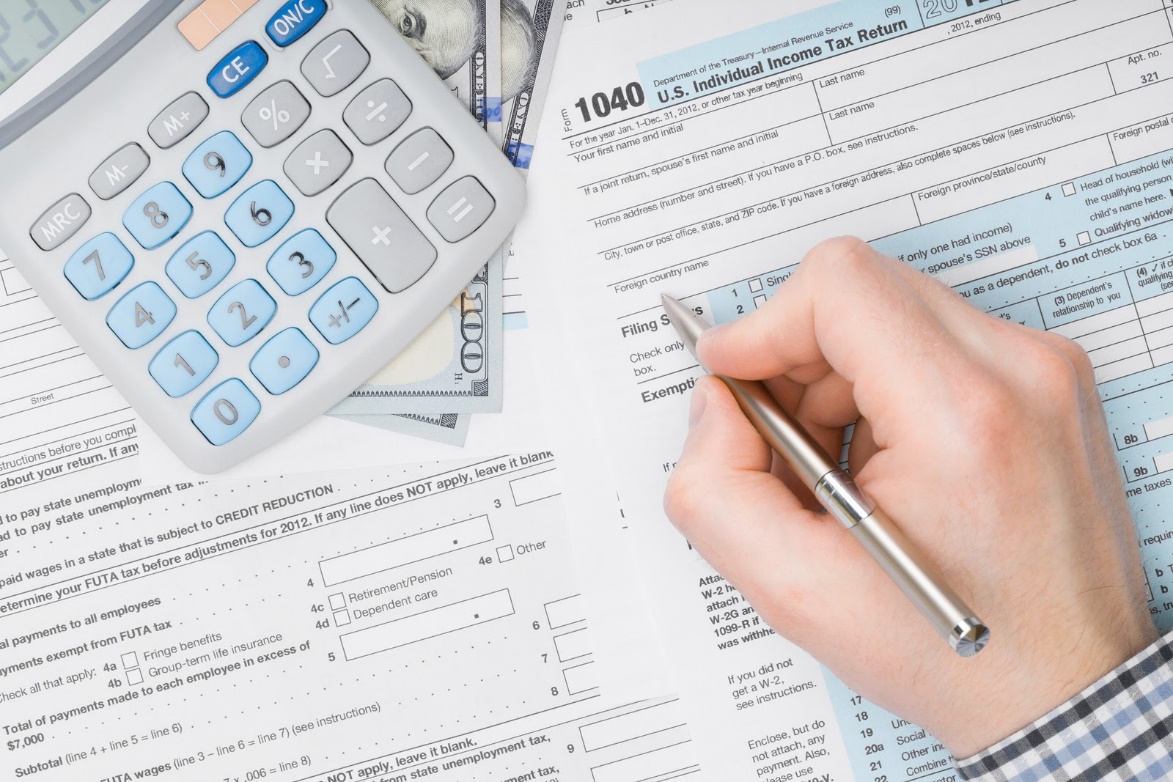What Happens if I Haven’t Filed Taxes in Years in California?
What happens if I haven’t filed taxes in years in California? As IRS tax audit accountants in Roseville explain, there are penalties for failure to file a tax return. What can you do about unfiled taxes?
The next deadline to file a federal income tax return, which is April 2018, may seem distant right now. However, tax season will be here you know it – and, if you’re like many taxpayers in California, you might need to resolve one, two, or more unfiled tax returns. If you’re a California resident and you’ve failed to file a tax return for the past several years, don’t panic: an experienced CPA in California can help you find a solution. If you need assistance filing past due tax returns, or have other questions about compliance with tax laws or requirements enforced by the Internal Revenue Service (IRS), contact Cook CPA Group for a free consultation.

Penalty for Failure to File a Federal Income Tax Return
If you have unfiled tax returns, it may feel tempting to “let sleeping dogs lie” and take no further action. However, this is a highly inadvisable strategy that could lead to damaging legal and financial repercussions.
To begin with, you need to understand that the IRS does not simply “forget” about unfiled tax returns. As technology grows more sophisticated, and the U.S. Tax Code grows more complex, it becomes increasingly important – and increasingly easy – for the IRS to detect and investigate discrepancies and omissions in a taxpayer’s record.
It is a myth that only large companies and high-earning taxpayers attract IRS notice. Any California resident who consistently fails to file a federal income tax return can, and eventually will, be detected. After all, the IRS may look as far back into your tax records as three years, six years, or even longer, as we discussed in a prior article on IRS tax audits. If you are concerned about being audited by the IRS, ask Cook CPA Group about our IRS tax audit services in Roseville and Sacramento.
Not only does the IRS have a long memory, making it unlikely (or impossible) to bypass eventual detection – in addition, you could face severe penalties if the IRS determines that you intentionally (“willfully”) failed to file a tax return. Willful failure to file a tax return is a crime, which could lead to your arrest, prosecution, and, if you are convicted, penalties including jail time and tens of thousands of dollars in fines. You will also gain a criminal record, which could have untold damage to your career and reputation.
Even if your failure to file previous tax returns was purely accidental (“negligent”), and did not involve any criminal intent or attempts to commit fraud, you could still face costly consequences. In cases of negligent failure to file a federal income tax return, the IRS typically imposes a penalty of 5% of the unpaid tax for each month – including partial months – the return is overdue. That means the longer you wait to file, the more expensive the penalty grows. Additionally, failure to file can expose you to other needless risks, such as difficulty qualifying for loans, or inability to receive credits toward disability benefits or Social Security benefits.

How to File a Past Due Tax Return with the IRS
The IRS can dig through years of your history to uncover unfiled tax returns. Moreover, federal tax laws and IRS regulations establish harsh failure-to-file penalties. The bottom line for taxpayers? It is in your best interests to resolve the situation as soon as possible. The longer you delay, the more complicated – and costly – it will be for you to come back into compliance with the U.S. Tax Code.
Fortunately, IRS regulations create opportunities for taxpayers to do exactly that. As the agency notes, “The failure-to-file penalty is generally more than the failure-to-pay penalty. You should file your tax return on time each year, even if you’re not able to pay all the taxes you owe by the due date. You can reduce additional interest and penalties by paying as much as you can with your tax return. You should explore other payment options such as getting a loan or making an installment agreement to make payments.”
To submit two or more unfiled tax returns, you should take the following steps:
- Locate as much financial documentation as you can find, such as old W-2 or 1099 forms.
- Obtain any documentation that you are missing. For example, if you had healthcare insurance under the Affordable Care Act (“ObamaCare”), you can look up your Form 1095-A online through Healthcare (dot) gov, or the Health Care Marketplace.
- Locate the most recent tax returns you did file. For example, you may be able to access digital copies through an online account.
- Contact a Sacramento tax preparer for further guidance. A California tax preparation service for individuals, such as Cook CPA Group, can help you navigate practical, cost-efficient options for filing unsubmitted tax returns, or paying unpaid taxes while representing you before the IRS.
Sacramento IRS Audit Accountants Can Help with Unfiled Tax Returns
The immense complexity of tax statutes makes it extremely difficult for taxpayers to negotiate effectively with the IRS. If you have multiple unfiled tax returns and attempt to handle the matter yourself – or worse, choose to simply ignore the unfiled returns – you are likely to face harsher penalties and higher costs than necessary.
Let our experienced tax audit accountants eliminate the stress and uncertainty of dealing with the IRS by handling your tax controversy for you. We can sit down with you for a detailed discussion of your unfiled tax returns, as well as any other outstanding tax controversies that may require resolution, to determine the most efficient course of action. Whether you are filing individually, are filing jointly with your spouse, are married filing separately, are the head of your household, or are a qualifying widow(er) with a dependent child, our goal is to bring you back into compliance with federal tax laws while working to protect your best interests and minimize your tax liability.
For a free consultation concerning unfiled tax returns, unpaid taxes, or other tax questions in California, call Cook CPA Group at (916) 432-2218 today.

